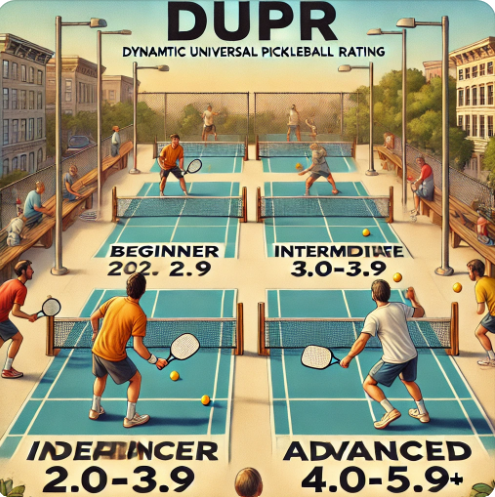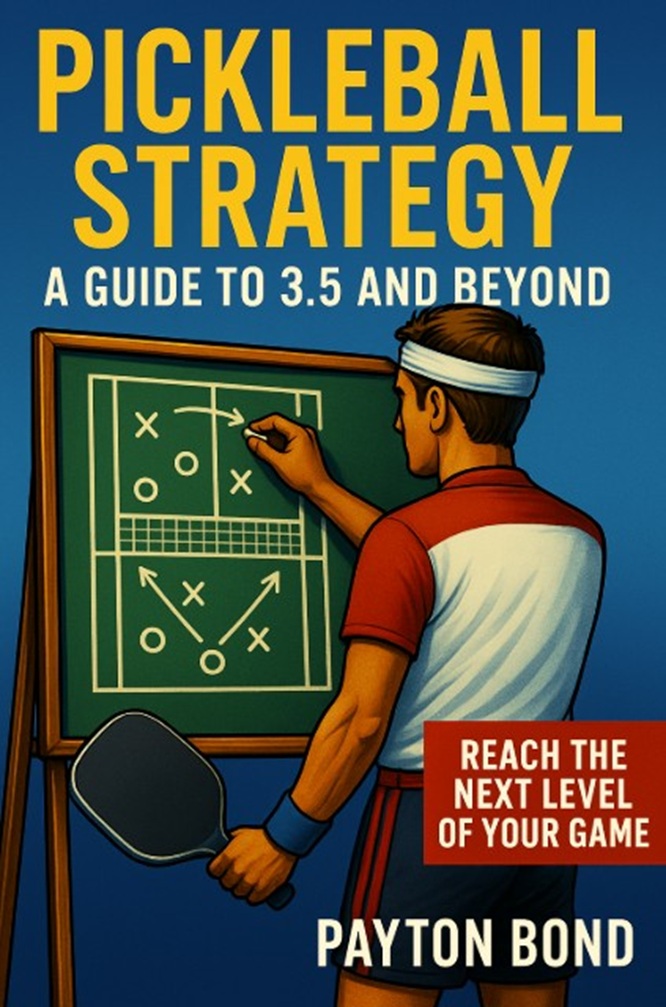
Pickleball DUPR Rating
DUPR, or Dynamic Universal Pickleball Rating, is like the Swiss Army knife of skill ratings—a global system designed to measure a pickleball player’s skill level regardless of age, gender, or location. Created to bring consistency to skill assessments, DUPR has quickly become a cornerstone of the pickleball community, especially as the sport gains popularity faster than a third-shot drive.
This user-friendly platform provides players, coaches, and tournament organizers with an accurate measure of performance based on actual match outcomes. Unlike traditional systems that rely on self-assessment or single-tournament results (and sometimes a generous helping of wishful thinking), DUPR takes a dynamic, data-driven approach. Developed by the Professional Pickleball Association (PPA), it offers an objective rating based on match results and has been widely adopted by clubs, leagues, and tournaments.
How Does DUPR Work?
DUPR’s sophisticated algorithm calculates your rating using match results. It tracks every game you play—whether it’s an intense tournament or a friendly backyard match—and adjusts your rating accordingly. The system considers factors like your opponent’s skill level, final scores, and the number of games played. The more you play, the more accurate your DUPR rating becomes.
Think of it as the Fitbit for your pickleball skills—constantly updating to give you a clearer picture of where you stand.
For recreational players, having a DUPR rating is a great way to track progress and find evenly matched opponents for a fun, competitive experience. For serious competitors, it’s essential. Many tournaments now require a DUPR rating and automatically record match results, making it an indispensable tool for competitive play.
How Accurate is DUPR, and Should You Be Concerned?
It’s normal to wonder how accurate your DUPR rating is—especially if you’ve had a bad day on the court or played against someone who forgot the difference between a pickleball paddle and a frying pan. But don’t stress—DUPR is designed to be a long-term measure of your skill level, not a judgment of one or two off-days.
Here’s how it works:
- DUPR factors in all your recorded matches, not just isolated games. It considers your skill level, your opponents’ skill levels, the final scores, and even how close the games were.
- Playing against someone significantly below your level? Winning won’t boost your rating much because, well, it’s expected. Lose to someone ranked much higher? No worries—the algorithm accounts for that, too.
DUPR understands that not all matches are created equal. It’s like that friend who knows when to take you seriously and when to cut you some slack.
Handling the Pressure of a Recorded Match
It’s easy to feel a bit of extra pressure when you know your matches are being tracked—suddenly, every dink feels like it’s under a microscope. But remember, DUPR is here to track your long-term progress. One bad match isn’t going to tank your rating, so don’t let the stress affect your game.
If you’re playing casually with friends or in less competitive matches, you can decide whether to report the results. Many players only report their official matches where they’re at their best, leaving the casual ones for experimenting (or that one game where your paddle slipped out of your hand).
The Bottom Line
DUPR is a tool, not a critique. It’s meant to reflect your overall development as a player and help you track your growth over time. One bad day or mismatched game won’t throw everything off balance.
Focus on playing your game, improving your strategies, and enjoying the sport. Let DUPR worry about the math. Over time, it will give you a reliable measure of your skill as you continue to grow and dominate—whether it’s at a local league or your next big tournament. And who knows? Your DUPR rating might even give you bragging rights at your next pickleball potluck!
Check out Payton Bonds new eBook!
Pickleball Strategy – A Guide to 3.5 and Beyond
See it on Amazon.

👤 Follow Payton Bond
All Star and Top Contributor on multiple Facebook Pickleball Forums.
Contributor at TheKitchenPickle.com.
Visit Payton Bonds Facebook Page




